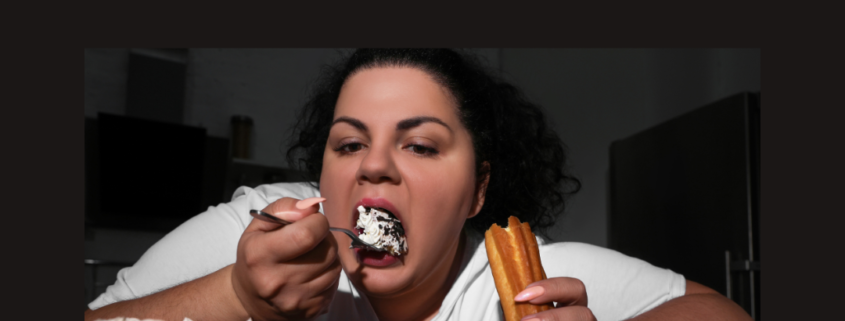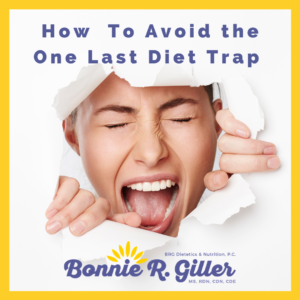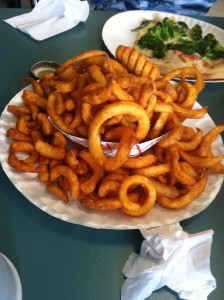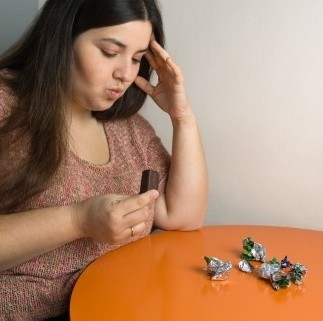Rebound Eating- What is it & how do I stop?
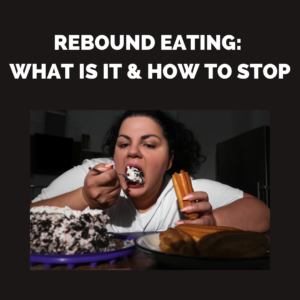 You may have heard the term “rebound eating” and find yourself asking “what is this”?
You may have heard the term “rebound eating” and find yourself asking “what is this”?
In a nutshell, when you restrict the foods you really enjoy eating until you’ve reaching a your breaking point, the backlash is rebound eating.
Think of it as your body’s last ditch effort to get your attention after you’ve decided to ignore what it’s trying to tell you—it’s also saying, “Hey! You’re seriously depriving me over here!”
As a chronic dieter, rebound eating is something you may have experienced in the past. Does this cycle sound familiar?
Reducing the number of calories you consume to less than what your body needs > deprive, deprive, deprive > hit a wall where you can’t take the deprivation anymore and your restriction takes a nose dive > binge, binge, binge > compensate with intense exercise—“I need to work this off!”> REPEAT!
This common cycle is harmful to your physical and mental health, and truly take a toll on your body. It leads to disordered eating patterns, and if not responded to immediately could lead to other health complications (i.e., dehydration, brittle hair/nails, fatigue, brain fog, and more).
How to Stop Rebound Eating
The only way to put an end to this cycle of rebound eating is to stop the restriction. That means to stop dieting. So what is the alternative you might ask?
Intuitive eating!
Making peace with food and giving yourself full permission to eat while connecting to your inner wisdom to guide you is the way to stop this destructive cycle. When you embrace intuitive eating and bring all foods back into your eating world, you no longer obsess about those foods.
Intuitive eating is a practice you are cultivating, and it’s a lifelong journey (it’s not a quick fix!). If you truly want to end the cycle of restriction-deprivation-rebound eating/binge eating – repeat, then consider committing to stop dieting.
Pop your name and email into the boxes below for a free experience to Break the Spell of Diets in 3 Days.
Want more? Join an amazing supportive community of women inside my membership called The Intuitive Nutrition Circle (aka The IN Circle) where the are learning to integrate gentle nutrition into their intuitive eating practice. Click here for all the deets.

